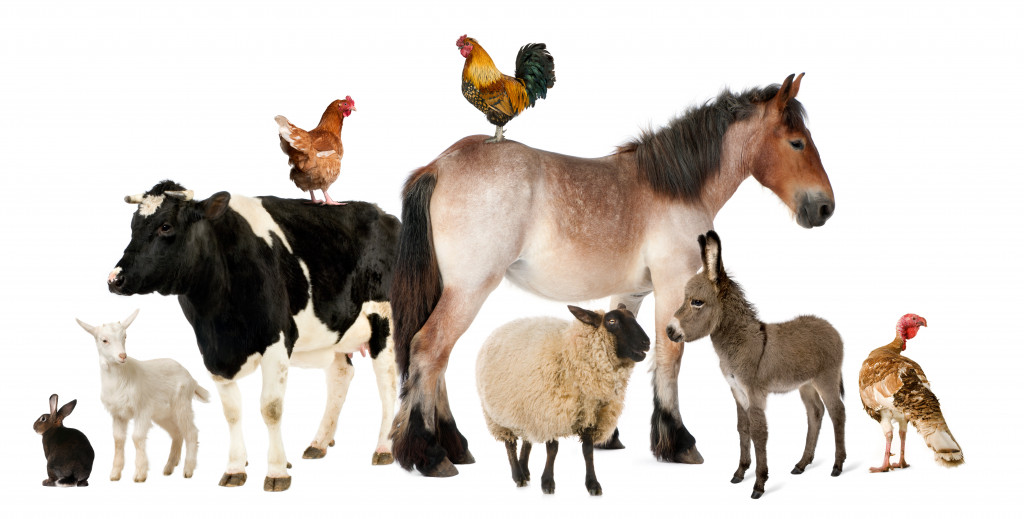- The livestock business is heavily regulated, and non-compliance may lead to legal and financial consequences.
- Before starting, ensure the property is zoned for agricultural use, provide humane animal care, and comply with food safety and environmental regulations.
- Employers must also adhere to employment laws, including minimum wage and anti-discrimination rules.
- The $900B livestock industry is expected to reach a trillion dollars with beef, dairy, pork, poultry, and egg production.
Starting a livestock business may seem like an exciting and rewarding venture, but it’s important to note that there are several laws and regulations that you must be aware of before getting started. The agriculture industry is highly regulated, and non-compliance can have severe legal and financial consequences. Before starting a livestock business, here are some of the laws you need to know to ensure your company operates legally and successfully.
The Livestock Industry
First, you need to know about the livestock industry. It produces, processes, and markets animal products such as beef, dairy, pork, poultry, and eggs. It’s worth nearly $900 billion and is expected to reach one trillion dollars in the coming years. Here are some laws surrounding the industry that you need to know.
Zoning Regulations
One of the primary legal considerations when starting a livestock business is ensuring that your property is properly zoned for agricultural use. Zoning is a set of regulations that dictate how the land can be used, and some municipalities may have strict ordinances related to raising livestock. Before starting your business, research local zoning laws and regulations to ensure you comply.

Animal Welfare Laws
As the owner of a livestock business, you must ensure that your animals are treated humanely. There are federal and state laws in place that protect animal welfare, and compliance with these laws is essential. Some basic requirements include providing clean water, adequate food, shelter, and medical care. Ensure you thoroughly understand animal welfare laws and implement proper care protocols for your livestock.
Food Safety Regulations
If you plan on processing and selling meat or other animal products, you must comply with food safety regulations. The United States Department of Agriculture (USDA) regulates food safety, and there are strict rules for meat and poultry processing, labeling, and handling. To comply with these regulations, you must maintain a clean and sanitary facility, follow strict labeling guidelines, and implement proper temperature controls.
Environmental Regulations
Livestock businesses can have a significant impact on the environment, and there are laws in place to regulate this impact. For example, federal and state agencies handle the disposal of animal waste, which can be a significant source of water pollution. Ensure you understand the environmental regulations related to livestock businesses and take the necessary steps to minimize your ecological impact.
Employment Laws
Lastly, as a business owner, you must know employment laws regulating hiring and management practices. These laws include minimum wage and overtime regulations, workplace safety rules, and anti-discrimination laws. Ensure you are fully aware of your responsibilities as an employer and comply with all applicable laws and regulations.
How to Get Started
Now you know these laws and regulations. You’re almost ready to start your own livestock business. Here’s how to get started:

Invest in Trailers
You must have the right vehicles to transport your livestock. This can help you avoid breaking animal welfare laws and keep your business efficient. You can look into stock combo trailers for sale online if you want affordable trailers. This will ensure that you have the proper transportation equipment for your business.
Find a Property
You need to find a property where you can raise and care for your livestock. Ensure it is correctly zoned for agricultural use and has the necessary buildings and infrastructure. You should also consider whether the property is near existing markets or processing plants.
Secure Funding
You’ll need to secure funding for your business. This is best done through personal savings, small business loans, and investments from family and friends. Consider contacting local banks or government agencies to see if you’re eligible for any grants or other forms of financing.
Protect Your Investment
Finally, make sure you protect your investment with the right insurance policies. This includes general liability, workers’ compensation, and property damage coverage. These will help protect your business in case of legal or financial problems.
Starting a livestock business can be an exciting venture if you know the laws and regulations surrounding it. Understand zoning, animal welfare, food safety, environmental, and employment laws. Then, invest in suitable trailers, find a property that meets your needs, secure funding for your business, and protect your investment with insurance policies. You can launch a thriving livestock business with the right preparation and knowledge of the law.

